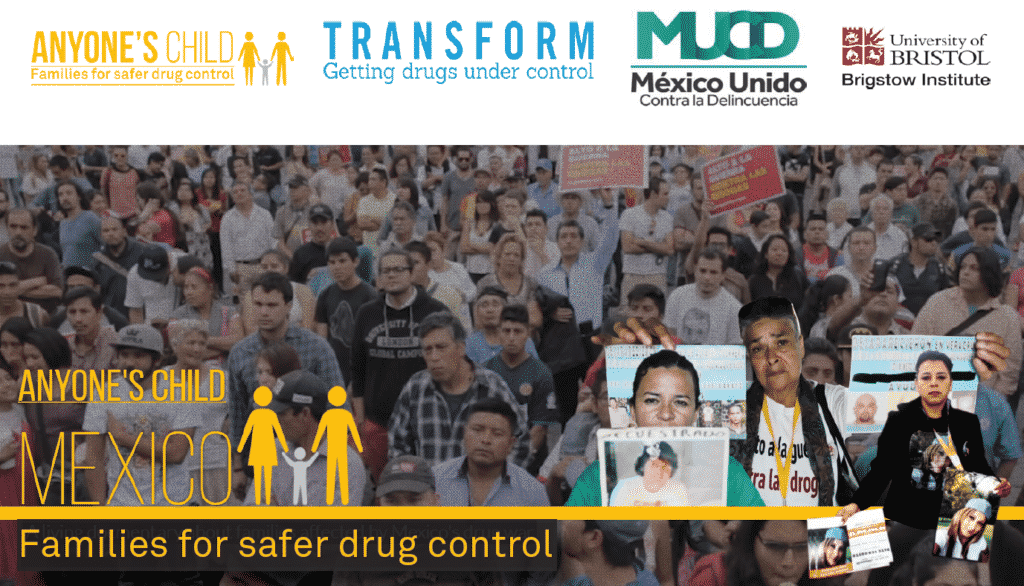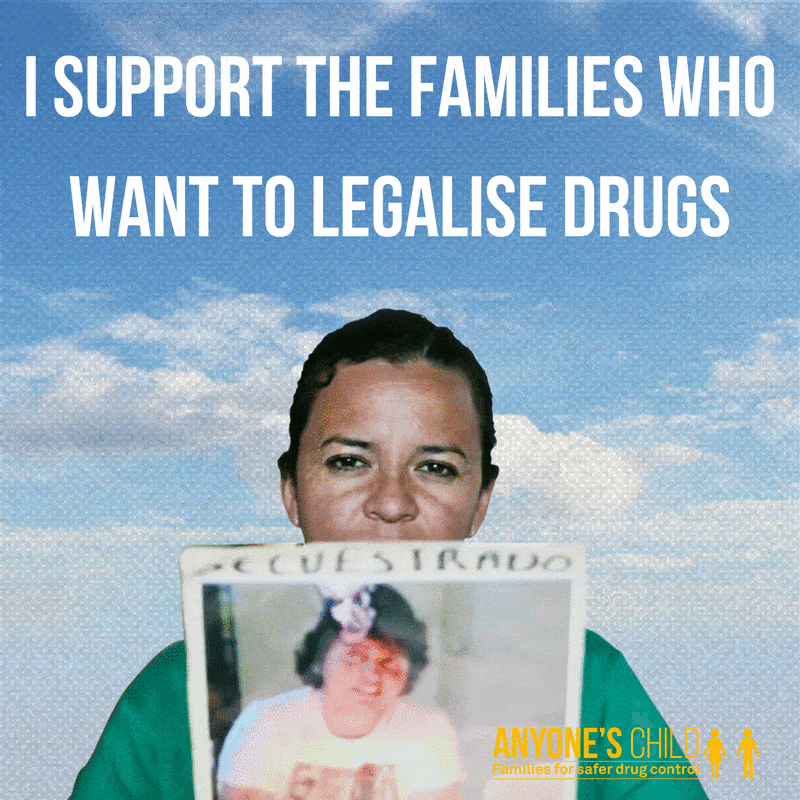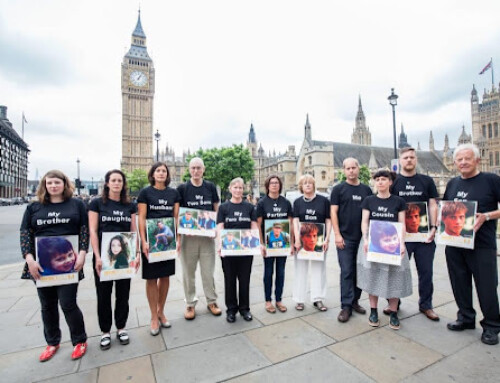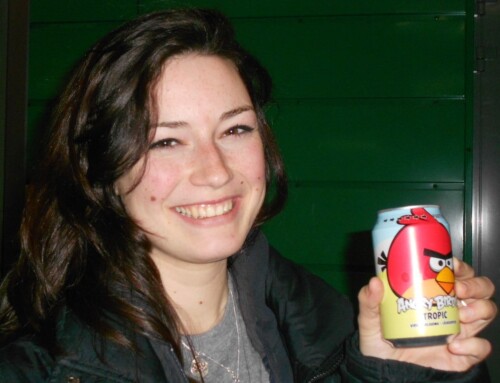This review was written by Calum Smith, Anyone’s Child Families for Safer Drug Control
 Since the increased militarisation of the Mexican government’s drug war in 2006, Mexico has lost over 150,000 citizens to murder, and over 28,000 people have disappeared. Each person is someone’s partner, parent, friend, or child. And each day, another 80 people are killed. Often, no-one knows where the disappeared are, or whether they are dead or alive. For each person, someone is still searching.
Since the increased militarisation of the Mexican government’s drug war in 2006, Mexico has lost over 150,000 citizens to murder, and over 28,000 people have disappeared. Each person is someone’s partner, parent, friend, or child. And each day, another 80 people are killed. Often, no-one knows where the disappeared are, or whether they are dead or alive. For each person, someone is still searching.
Last night, members of Anyone’s Child: Families for Safer Drug Control and technologists from the Brigstow Institute came together to present and discuss a new collaborative i-Documentary containing previously unheard stories from the front line of the Mexican drugs war. Using a free phoneline set up in Mexico and connected to the site, people affected by the drug war are able to share their testimonies in this continuously expanding documentary project. The interactive documentary provides an archive of stories of how families have been torn apart but the disastrous drug war, and are campaigning for a new, safer, sensible approach to drugs based on legal control and regulation.
 The sold-out event featured a panel discussion featuring Jane Slater, Campaign Manager at Anyone’s Child, Tania Ramírez, Director of Drug Policy at United Mexico Against Crime (MUCD), Professor Matthew Brown, Professor of Latin American History at the University of Bristol, and Ewan Cass-Kavanagh, creator of the i-documentary. The panel discussion, and Q&A session that followed, demonstrated that fighting a drug war in Mexico has had grave consequences for those living in Mexico, where families have been torn apart as a direct result of Mexican drug policy. Some of the voices that were heard in the clips of the i- documentary highlight this, engaging the audience through interactive technology. The i-documentary highlighted the narratives of individuals affected by drug laws in their own language and in their own time. This is achieved through recorded testimonies gathered through a Freephone set up in Mexico, a technology previously used successfully when Ewan and Matthew worked together on the i-doc ‘Quipu’, about forced sterilisation in Peru.
The sold-out event featured a panel discussion featuring Jane Slater, Campaign Manager at Anyone’s Child, Tania Ramírez, Director of Drug Policy at United Mexico Against Crime (MUCD), Professor Matthew Brown, Professor of Latin American History at the University of Bristol, and Ewan Cass-Kavanagh, creator of the i-documentary. The panel discussion, and Q&A session that followed, demonstrated that fighting a drug war in Mexico has had grave consequences for those living in Mexico, where families have been torn apart as a direct result of Mexican drug policy. Some of the voices that were heard in the clips of the i- documentary highlight this, engaging the audience through interactive technology. The i-documentary highlighted the narratives of individuals affected by drug laws in their own language and in their own time. This is achieved through recorded testimonies gathered through a Freephone set up in Mexico, a technology previously used successfully when Ewan and Matthew worked together on the i-doc ‘Quipu’, about forced sterilisation in Peru.
During the panel discussion, Jane Slater explained the goals and idea behind Anyone’s Child: Families for Safer Drug Policy, before Tania Ramírez explained her work with MUCD within the context of an ongoing devastating drug war in Mexico. Ewan Cass-Kavanagh explained the interactivity of the i-documentary, and showed how, as an archival resource, the i-documentary can help re-position the narratives of individuals affected by the drug war at the centre of the debate about drug policy. Professor Matthew Brown then situated the i-documentary in a wider context of research currently being undertaken at the University of Bristol that focuses on letting individuals within Latin American history tell their own story.
The panel then fielded questions from the audience, ranging from the practicalities of acquiring testimony for the i-Documentary, to whether the testimonies featured in the i-doc will be used to aid campaigning in Mexico, to party-political approaches to drug policy in the UK.
Those within the sold-out audience left with an increased awareness of the extent to which militarised drug wars disproportionately affect innocent civilians, rather than criminals. As the stories from Mexico underline, fighting the drug war does not keep children and families safe. Drug-war violence affects thousands of families across Mexico, and until the law
changes the next causality of the drug war really could be anyone’s child.
Please watch the i-documentary: mexico.anyoneschild.org




Leave A Comment